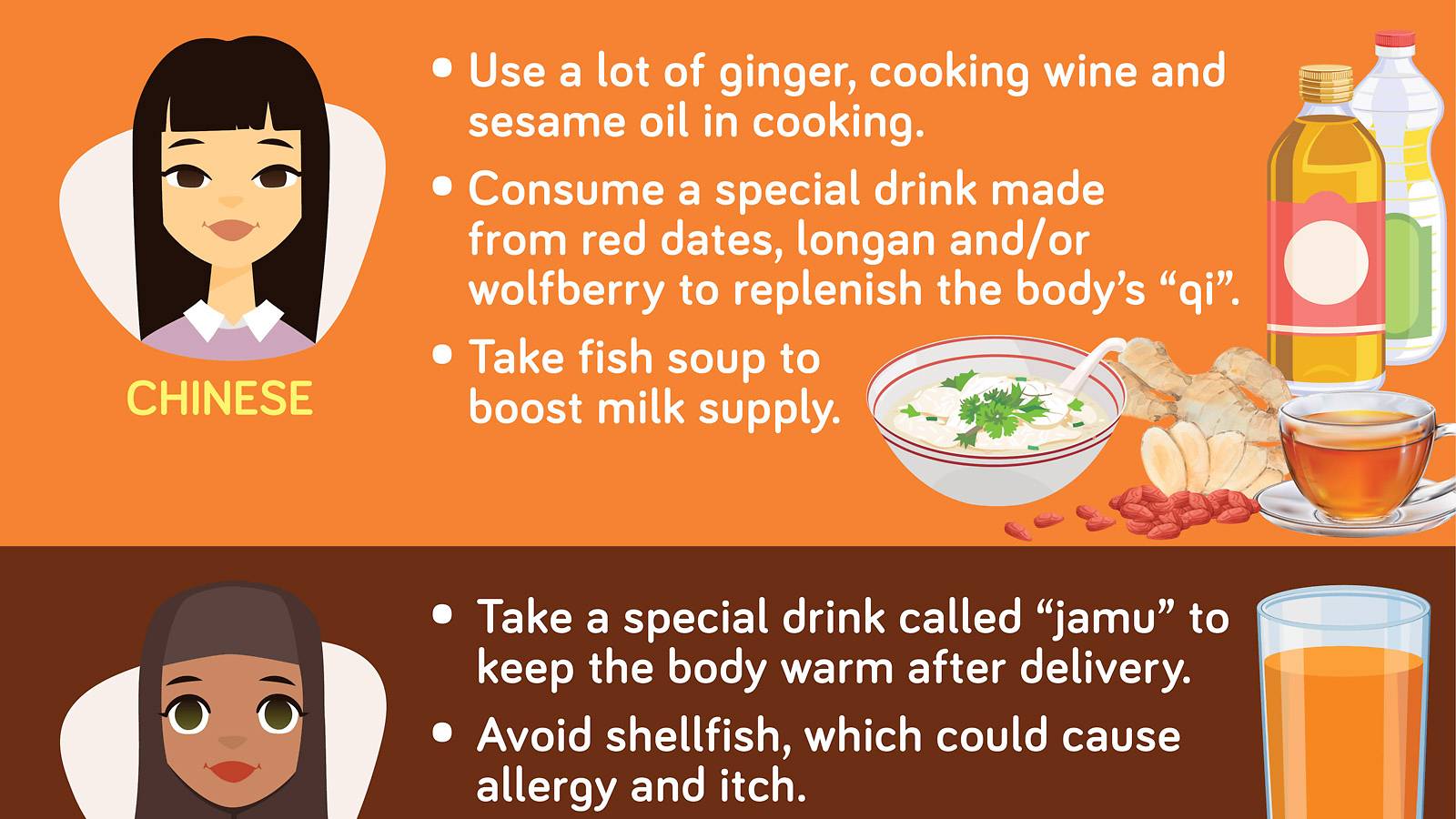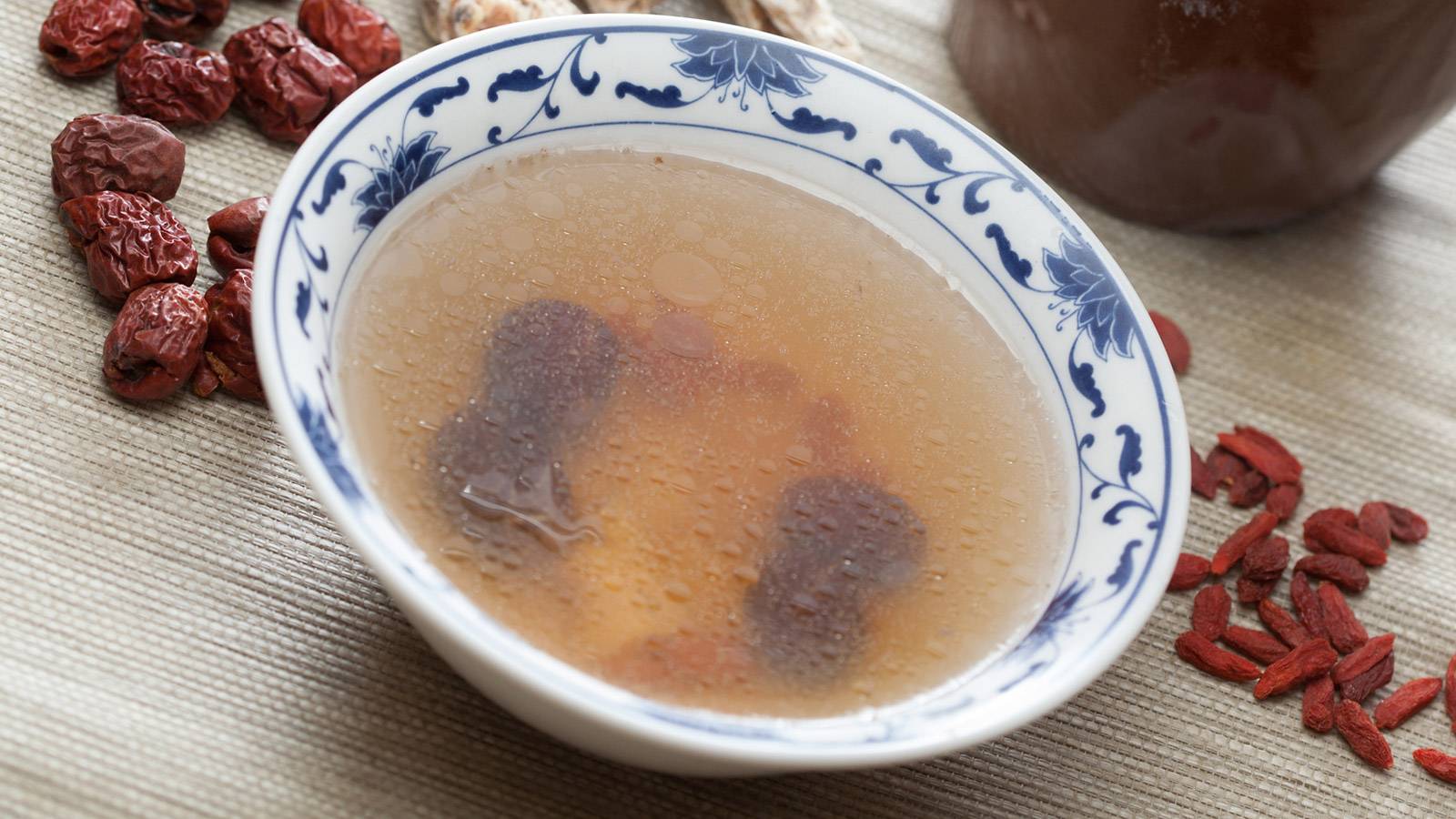After childbirth, a new mum follows a special diet ― learn how these foods boost her recovery and breastmilk supply.

After childbirth, a new mother’s body is weakened and in need of lots of rest and nourishment. So, confinement is a time for new mothers to restore their strength and good health.
During confinement, which usually occurs in the first month of delivery, the new mum is “confined” at home to rest and recover from giving birth. She also follows a special confinement diet to condition her body for recovery and boost her milk production.
Homemaker Joyce Lim, 40, is no stranger to post-delivery confinement, having gone through it four time with each of her children. “It is a common practice among the Chinese and my mother strongly encouraged me to practise confinement, so that I would be able to build my health back after pregnancy and not suffer any ill-effects like rheumatism, body pains or constant headaches in the future.”
“Throughout my four confinement periods, my skin had a healthy glow and my body recuperated faster due to this healthy diet. I also had a very abundant supply of breastmilk.”
Unlike some of her friends, Lim enjoys eating confinement dishes. “Not only were the confinement dishes delicious, they were good for my body, too. Throughout my four confinement periods, my skin had a healthy glow and my body recuperated faster due to this healthy diet. I also had a very abundant supply of breastmilk.”
Consumption of confinement foods is a personal preference, notes dietitian Janice Chong of Mount Alvernia Hospital. “It is common among Asians and the duration differs according to the ethnic group, ranging from 28 to over 40 days.”
Generally, all ethnic groups encourage new mothers to take “heaty” food and to avoid “cooling” foods.
Infographic: Rachel Lim

Are there any side effects?
Chong notes that, generally, new mothers can take confinement foods as long as their overall diet is well balanced. “However, according to Traditional Chinese Medicine (TCM), most confinement food is heaty. Hence, if your body constituent is more heaty (eg more vulnerable to sore throats), you would probably need to reduce certain ingredients in cooking such as ginger and sesame oil,” she cautions.
As traditional confinement food is usually prepared with plenty of sesame oil and sometimes fatty meat, taking too much could lead to excessive consumption of calories and hence, weight gain, Chong notes.
“Longan red date is a common drink during confinement. This could also lead to excessive calorie consumption and if new mothers had gestational diabetes (diabetes during pregnancy), this could cause her blood sugar level to remain high,” she adds.
So, reduce your intake of this drink, or dilute it. And if your body composition is “heaty”,” you might want to avoid it altogether because this tea is heaty, according to TCM, Chong advises.

Common confinement dishes
Learn about the ingredients used in common confinement dishes as well as their health benefits.
Chinese confinement dishes
Sheng hua soup
Ingredients: Sichuan lovage root (chuan xiong), semen persicae (tao ren), Chinese Angelica (dang gui), roasted licorice root (zhi gan cao), blast-fried ginger (pao jiang)
Benefits: Aids in womb recovery by clearing it of harmful toxins and lochia, as well as improves the flow of blood and qi.
Hong zao chicken
Ingredients: Chicken, ginger (lao jiang), cooking wine, red glutinous wine lees (hong zao), sesame oil, sugar, salt
Benefits: Replenish qi and regulate menses.
As traditional confinement food is usually prepared with plenty of sesame oil and sometimes fatty meat, taking too much could lead to excessive consumption of calories and hence, weight gain.
He shou wu pork rib soup
Ingredients: Polygonum (he shou wu), pork ribs, wolfberries (gou ji zi), red dates, salt
Benefits: He shou wu strengthens the bones and tendons, while promoting hair growth/ preventing hair loss after delivery.
Black vinegar pig’s trotters
Ingredients: Pork trotters, black vinegar, sweet vinegar, ginger, sesame oil, soy sauce, sugar
Benefits: Expels wind from the body, purifies the blood, improves blood circulation, strengthens the immune system and replenishes calcium and collagen.
Rice wine chicken
Ingredients: Chicken, glutinous rice wine, black/wood ear fungus, ginger, brown sugar, soy sauce
Benefits: Expels wind and stale blood from the body, purifies the blood and nourishes the lungs, stomach and liver.
Papaya fish soup
Ingredients: Green papaya, fish bones, snakehead (sheng yu), ginger, garlic, red dates, salt, sesame oil
Benefits: Boosts breastmilk production, aids digestion and wound healing.
Malay confinement dishes
Stewed snakehead fish with pepper
Ingredients: Snakehead fish (ikan haruan), ginger, onion, shallots, tamarind, black pepper, salt, oil
Benefits: Promote internal wound healing and speed up the recovery process.
Pan-fried beef with turmeric
Ingredients: Beef slices, turmeric, onion, garlic, ginger, salt, red and green chillies, cooking oil
Benefits: Turmeric not only replenishes blood loss during delivery and prevents anaemia, it helps the womb to shrink back to its pre-pregnancy state.
Indian confinement dish
Garlic rasam
Ingredients: Tamarind (assam) paste, garlic, black pepper, red chilli, salt, ghee, curry leaves, cumin, mustard seeds
Benefits: Boosts breastmilk supply.
Photos: iStock
Like us on Facebook and check SmartParents regularly for the latest reads!
You’d love these stories, too…
Surviving your baby’s first week at home
CONVERSATIONS WITH… A Lactation Consultant
BUYER’s GUIDE Best disposal tape diapers for your baby [Photo Gallery
